After the Law on Organization of Local Government took effect, local government was transferred from 3 levels to 2 levels, so some current regulations on disciplinary actions related to district and commune levels are no longer suitable for the 2-level local government model. In the process of implementing regulations on disciplinary actions against cadres, civil servants, and public employees, ministries, branches, and localities reflected on difficulties in disciplinary actions against some situations arising in personnel work; some regulations need to be amended to ensure consistency in law enforcement such as principles of handling, order, and procedures for disciplinary actions, etc.
In order to promptly institutionalize the Party's policies and guidelines, the Government issued Decree No. 172/2025/ND-CP replacing Decree No. 112/2020/ND-CP dated September 18, 2020 of the Government on disciplinary action against cadres, civil servants and public employees and Decree No. 71/2023/ND-CP dated September 20, 2023 of the Government amending and supplementing a number of articles of Decree No. 112/2020/ND-CP dated September 18, 2020 on disciplinary action against cadres, civil servants and public employees.
Tighten the case of not yet considering disciplinary action
Decree No. 172/2025/ND-CP stipulates 3 cases that have not been considered for disciplinary action (instead of 4 cases as prescribed in Decree No. 112/2020/ND-CP):
1- Officials and civil servants who are being treated for a serious illness or are losing cognitive ability; are seriously ill and are being treated as inpatients at a hospital with confirmation from a competent medical authority.
2- Female cadres and civil servants who are pregnant, on maternity leave, or raising children under 12 months old, or male cadres and civil servants (in case the wife dies or the wife cannot raise the child due to force majeure or objective obstacles as prescribed by the Civil Code and laws on emergency situations) who are raising children under 12 months old, except in cases where the violator has a written request for consideration of disciplinary action.
3- Officials and civil servants who are being prosecuted, detained, or imprisoned pending the conclusion of the competent authority investigating, prosecuting, or trying a violation of the law; except in cases where it is decided by a competent authority.
(Previously, Decree No. 112/2020/ND-CP stipulated that the case of "cadres, civil servants, and public employees who are on annual leave, leave according to the regime, or personal leave permitted by competent authorities" is also a case that has not been considered for disciplinary action.)
Supplementing cases of exemption from disciplinary responsibility
Decree No. 172/2025/ND-CP stipulates cases of disciplinary exclusion to be implemented according to the provisions of the Penal Code and other relevant legal provisions.
In case of violation with one or more of the following circumstances, disciplinary action will be exempted:
a- Having the competent authority confirm the loss of civil capacity when committing a violation;
b- Must comply with the decisions of superiors according to the provisions of Clause 5, Article 7 of the Law on Cadres and Civil Servants 2025;
c- The competent authority confirms the violation in an urgent situation, due to force majeure or objective obstacles according to the provisions of the Civil Code and the law on emergency situations when performing official duties;
d- Having complied with regulations on authority, order, procedures, and not seeking personal gain in the process of performing tasks but causing damage for objective reasons;
d- Implementing innovation and creativity proposals that are permitted by competent authorities and determined by competent authorities to be implemented in accordance with policies, with pure motives, and for the common good, but causing damage.
e- Committing a violation that resulted in disciplinary action but has passed away.
Thus, compared with Decree No. 71/2023/ND-CP and Decree No. 112/2020/ND-CP, Decree No. 172/2025/ND-CP has added cases d and đ to institutionalize Resolution No. 138/NQ-CP dated May 16, 2025 of the Government and the Law on Cadres and Civil Servants 2025 on the mechanism to encourage daring to think and dare to do.
At the same time, Decree No. 172/2025/ND-CP also adds specific provisions on violations that are considered for mitigating or increasing the level of discipline.
In case of violation with one or more of the following circumstances, the disciplinary level will be reduced:
a- Proactively report violations, voluntarily accept personal responsibility for shortcomings and violations, and accept disciplinary action commensurate with the content, nature, and level of the violation before and during the inspection and supervision process;
b- Proactively provide information, records, documents, and fully and honestly reflect on co-violations;
c- Proactively stop violations, actively participate in preventing violations; voluntarily hand over corrupt assets, compensate for damages, and remedy the consequences caused by oneself.
In case of violation with one or more of the following circumstances, the disciplinary level will be increased:
a- Having been requested by an agency, organization or unit to review but not implementing or correcting shortcomings or violations. Not voluntarily admitting shortcomings or violations, and applying disciplinary measures commensurate with the content, nature and extent of the violation; causing material damage that must be compensated but not compensated, not remedying the consequences or remedying them not in accordance with the requirements of the competent authority, not voluntarily returning money or assets resulting from the violation;
b- Dealing with, being evasive, or obstructing the process of inspection, supervision, examination, auditing, investigation, prosecution, trial, and execution of judgment. Covering up for violators; threatening, persecuting, or taking revenge on those who fight, denounce, testify, or provide documents or evidence of violations;
c- Organized violations, being the mastermind; providing false information and reports; preventing others from providing evidence of violations; concealing, altering, destroying evidence, creating fake documents, records, and evidence;
d- Taking advantage of one's position, power, taking advantage of a state of emergency, natural disaster, fire, or epidemic to implement social security, national defense, and security policies for personal gain. Forcing, mobilizing, organizing, or assisting others in committing violations.
Amendment of disciplinary processing time limit
At the same time, to be consistent with the Law on Cadres and Civil Servants 2025, Decree No. 172/2025/ND-CP also amends and supplements the time limit for disciplinary action.
According to the new regulations, the statute of limitations for disciplinary action is the period after which a cadre, civil servant, or person who has resigned or retired and committed a violation will not be subject to disciplinary action. The statute of limitations for disciplinary action is calculated from the time of the violation until the time the competent authority issues a written notice of consideration for disciplinary action. In case a new violation occurs within the time limit for calculating the statute of limitations for disciplinary action according to regulations, the statute of limitations for disciplinary action for the old violation shall be recalculated from the time of the new violation.
The disciplinary period for cadres and civil servants is the period from the discovery of the violation of the cadres and civil servants until the decision on disciplinary action is made by the competent authority.
The disciplinary handling period shall not exceed 90 days; in cases where the case has complicated circumstances and requires further inspection and verification, the disciplinary handling period may be extended but shall not exceed 150 days.
The competent authority handling disciplinary action must ensure that the disciplinary action is taken within the prescribed time limit. If the disciplinary action period expires and a disciplinary action decision has not yet been issued, it shall be responsible for the delay in issuance in accordance with Party regulations and relevant laws and must issue a disciplinary action decision if the violation is still within the statute of limitations.
Not included in the statute of limitations and disciplinary handling time limit are: Time not yet considered for disciplinary handling in cases not yet considered for disciplinary handling; time for investigation, prosecution, and trial according to criminal procedure (if any); time for making complaints or initiating administrative lawsuits at the Court regarding disciplinary handling decisions until a replacement disciplinary handling decision is issued.
Abolish some forms of discipline for officials and civil servants
The Decree stipulates disciplinary measures applicable to officials, including: Reprimand; warning; dismissal, applicable to officials approved, appointed or designated to hold positions or titles; and dismissal.
Disciplinary measures applied to civil servants : Reprimand; warning; dismissal, applied to civil servants in leadership and management positions; forced resignation.
Thus, Decree No. 172/2025/ND-CP has removed the disciplinary form of demotion applied to civil servants holding leadership and management positions and salary reduction for civil servants not holding leadership and management positions as prescribed in Decree No. 71/2023/ND-CP. This change is to comply with the Law on Cadres and Civil Servants 2025. Because this Law does not prescribe the above two disciplinary forms.
At the same time, Decree No. 172/2025/ND-CP also clearly stipulates the application of disciplinary measures. Specifically:
Apply disciplinary reprimand to officials and civil servants
The disciplinary measure of reprimand is applied to cadres and civil servants who commit violations for the first time, causing less serious consequences, except for violations specified in Clause 3, Article 9 of Decree 172/2025/ND-CP, falling into one of the following cases:
1- Violating regulations on obligations of cadres and civil servants; things cadres and civil servants are not allowed to do; violating public ethics, communication culture in the workplace, communication with the people; violating internal rules and regulations of agencies, organizations and units.
2- Violating the provisions of law on: crime prevention and control; social evil prevention and control; social order and security; corruption prevention and control; practicing thrift and combating waste.
3- Violation of regulations on: democratic centralism; propaganda, speech; internal political protection.
4- Violating the provisions of law on: investment, construction; land, environmental resources; finance, accounting, banking; management and use of State and People's assets against regulations.
5- Violation of other Party regulations and laws related to cadres and civil servants.
Apply disciplinary warning to officials and civil servants
Disciplinary warning is applied to officials and civil servants who commit violations in one of the following cases:
1- Having been disciplined by reprimand according to the above regulations and re-offending.
2- First-time violation, causing serious consequences in one of the cases subject to disciplinary reprimand above.
3- First-time violation, causing less serious consequences in one of the following cases:
a) Cadres and civil servants holding leadership and management positions do not properly and fully perform their assigned management and operational duties and responsibilities;
b) The head of an agency, organization or unit allows serious violations of the law to occur within the scope of his/her responsibility without taking measures to prevent them.
Applying disciplinary measures of dismissal to officials and civil servants holding leadership and management positions
Disciplinary action of dismissal applies to officials and civil servants holding leadership or management positions in one of the following cases:
1- Having been disciplined by warning according to the above regulations and re-offending.
2- Committing a first-time violation with very serious consequences in one of the cases where disciplinary action of reprimand is applied but not to the extent of forced resignation or dismissal, the violator has an attitude of acceptance, correction, proactively overcoming the consequences and in one of the cases of violation with one or several mitigating circumstances.
3- Using illegal documents to be planned, elected, approved, or appointed to a position.
Apply disciplinary measures of forced dismissal to civil servants
Disciplinary action of forced dismissal is applied to civil servants who commit violations in one of the following cases:
1- Disciplinary action in the form of dismissal for civil servants holding leadership or management positions or warning for civil servants not holding leadership or management positions who re-offend.
2- Committing a first-time violation causing very serious consequences in one of the cases applying the disciplinary measure of reprimand or Clause 3, Article 9 of Decree No. 172/2025/ND-CP, but the violator does not have an attitude of acceptance, correction, proactively overcoming the consequences and is in one of the cases subject to increased disciplinary action.
3- Using fake or illegal diplomas, certificates, certifications, or confirmations to be recruited into agencies, organizations, or units.
4- Drug addiction; in this case, there must be a conclusion from a medical facility or a notification from a competent authority.
Apply disciplinary action of dismissal to officials
Officials who violate the provisions of the Law on Organization of the National Assembly, the Law on Organization of Local Government, the Law on Election of Deputies to the National Assembly and People's Councils and other relevant provisions of law shall be dismissed. The authority, order and procedures for dismissal shall be implemented in accordance with the provisions of law.
Phuong Nhi
Source: https://baochinhphu.vn/quy-dinh-moi-ve-xu-ly-ky-luat-can-bo-cong-chuc-vien-chuc-102250702121427988.htm


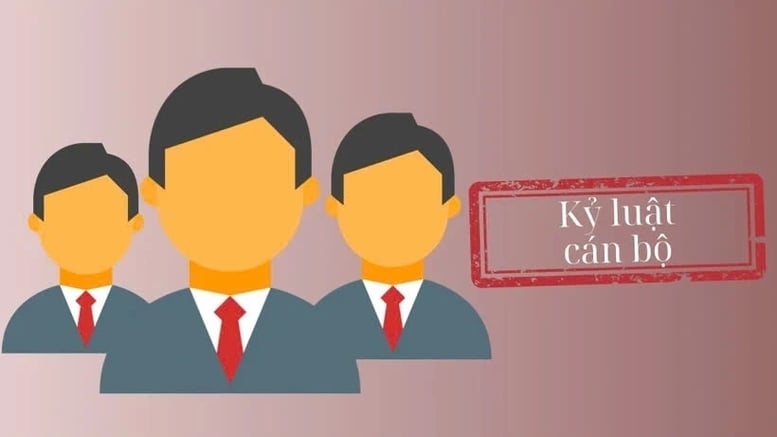






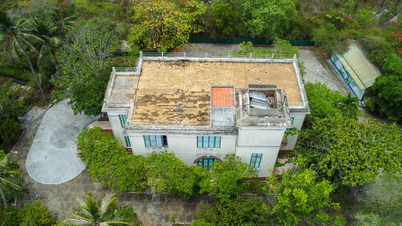



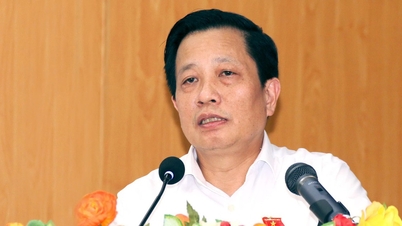
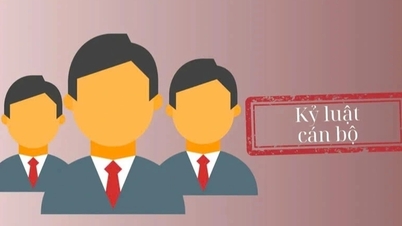







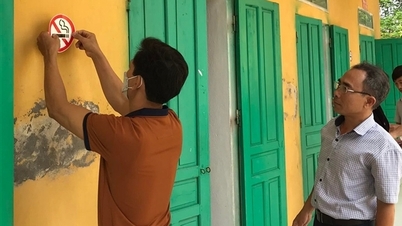

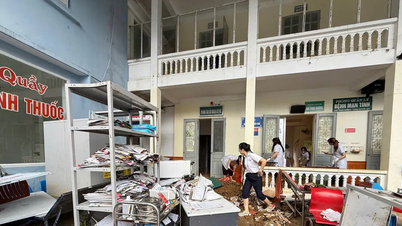
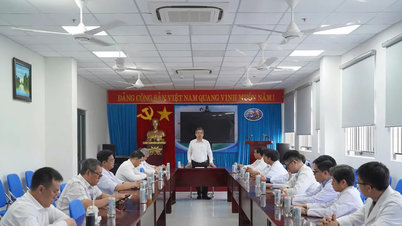
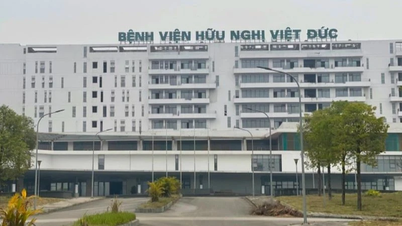




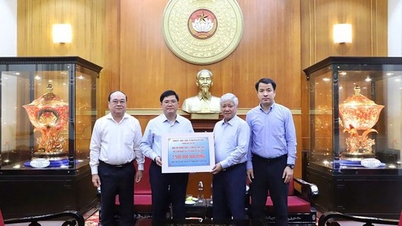


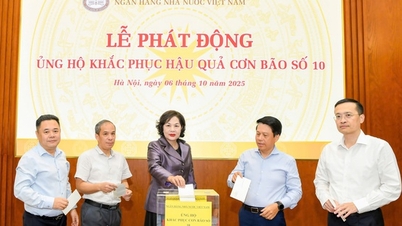
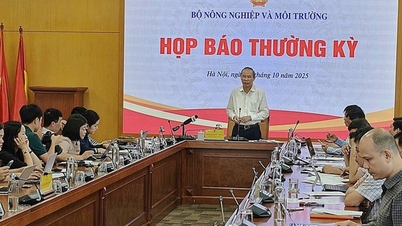
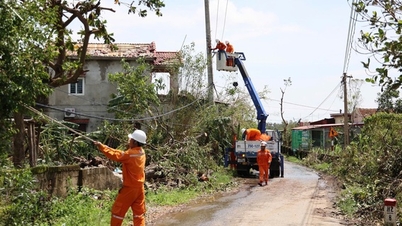




































































Comment (0)